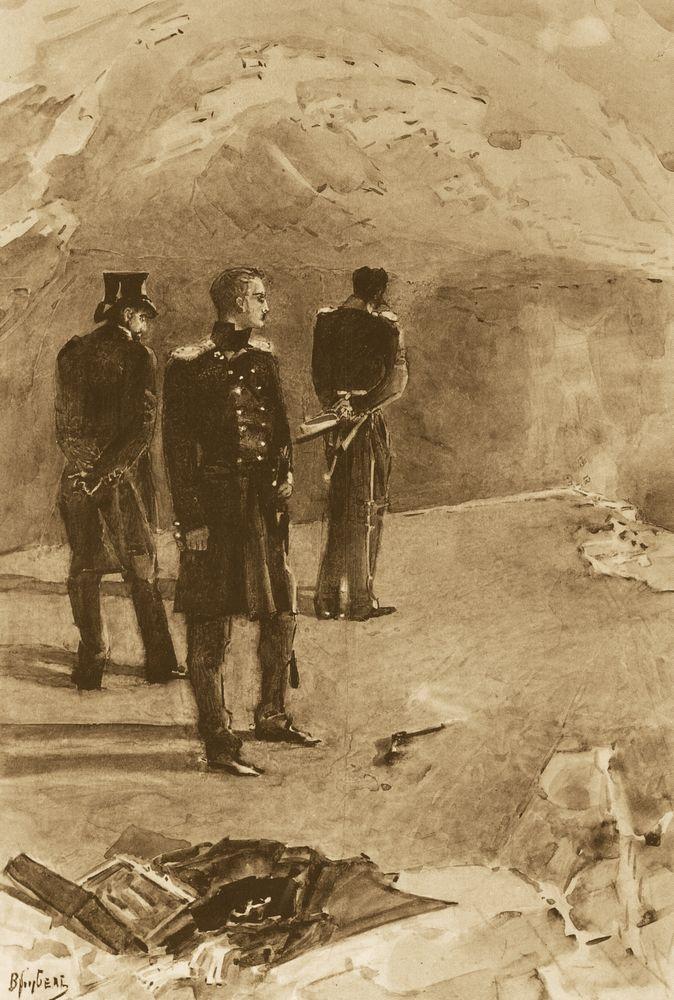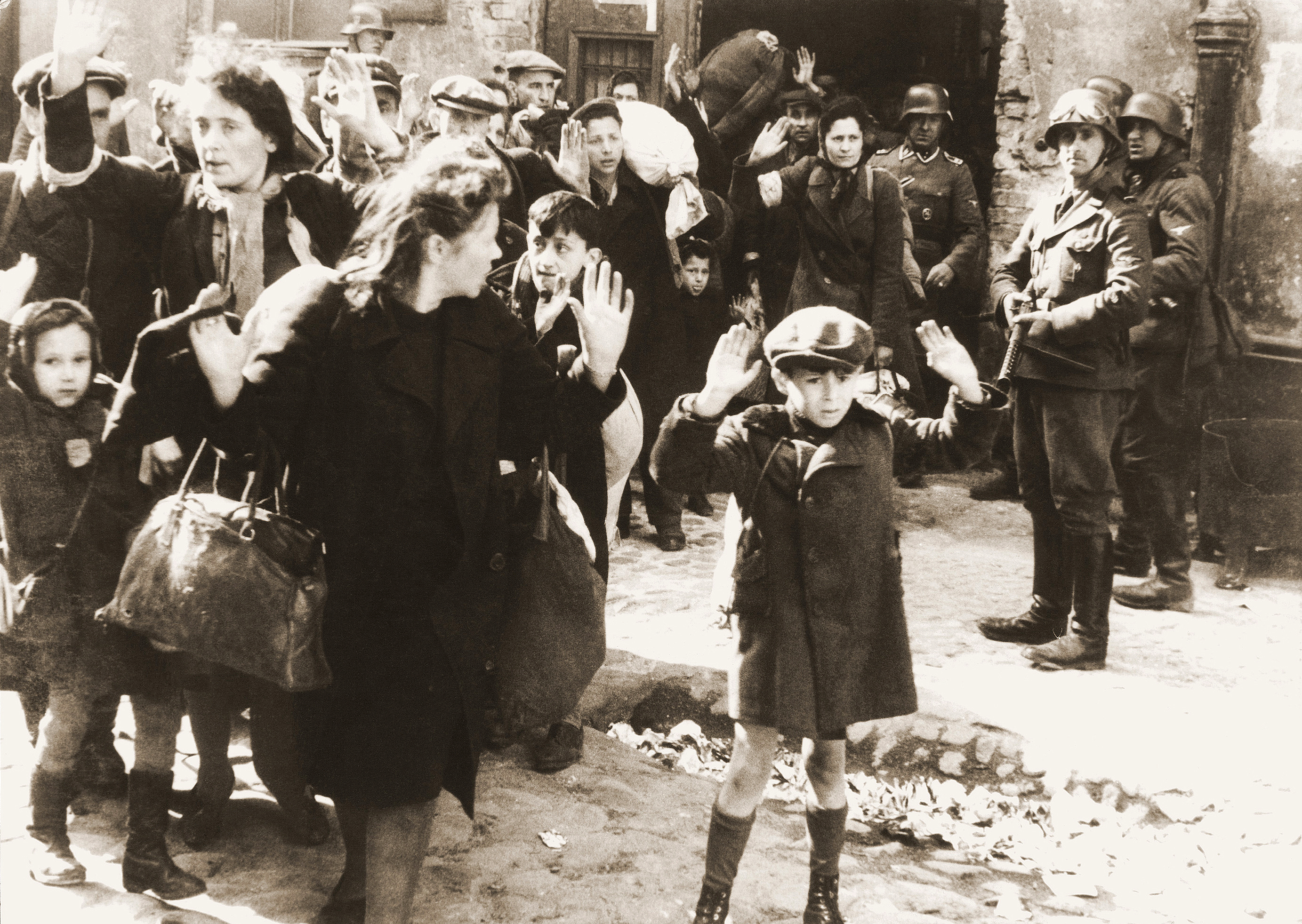|
A Hero Of Our Time
''A Hero of Our Time'' ( rus, Герой нашего времени, links=1, r=Gerój nášego vrémeni, p=ɡʲɪˈroj ˈnaʂɨvə ˈvrʲemʲɪnʲɪ) is a novel by Mikhail Lermontov, written in 1839, published in 1840, and revised in 1841. It is an example of the superfluous man novel, noted for its compelling Byronic hero (or antihero) Pechorin and for the beautiful descriptions of the Caucasus. There are several English translations, including one by Vladimir Nabokov and Dmitri Nabokov in 1958. Grigory Alexandrovich Pechorin Pechorin is the embodiment of the Byronic hero. Byron's works were of international repute and Lermontov mentions his name several times throughout the novel. According to the Byronic tradition, Pechorin is a character of contradiction. He is both sensitive and cynical. He is possessed of extreme arrogance, yet has a deep insight into his own character and epitomizes the melancholy of the Romantic hero who broods on the futility of existence and the ce ... [...More Info...] [...Related Items...] OR: [Wikipedia] [Google] [Baidu] |
Mikhail Lermontov
Mikhail Yuryevich Lermontov (; russian: Михаи́л Ю́рьевич Ле́рмонтов, p=mʲɪxɐˈil ˈjurʲjɪvʲɪtɕ ˈlʲɛrməntəf; – ) was a Russian Romantic writer, poet and painter, sometimes called "the poet of the Caucasus", the most important Russian poet after Alexander Pushkin's death in 1837 and the greatest figure in Russian Romanticism. His influence on later Russian literature is still felt in modern times, not only through his poetry, but also through his prose, which founded the tradition of the Russian psychological novel. Biography Mikhail Yuryevich Lermontov was born in Moscow into the respectable noble family of Lermontov, and he grew up in the village of Tarkhany (now Lermontovo in Penza Oblast). His paternal family descended from the Scottish family of Learmonth, and can be traced to Yuri (George) Learmonth, a Scottish officer in the Polish–Lithuanian service who settled in Russia in the middle of the 17th century. He had been captur ... [...More Info...] [...Related Items...] OR: [Wikipedia] [Google] [Baidu] |
Albert Camus
Albert Camus ( , ; ; 7 November 1913 – 4 January 1960) was a French philosopher, author, dramatist, and journalist. He was awarded the 1957 Nobel Prize in Literature at the age of 44, the second-youngest recipient in history. His works include '' The Stranger'', '' The Plague'', ''The Myth of Sisyphus'', '' The Fall'', and '' The Rebel''. Camus was born in French Algeria to '' Pieds Noirs'' parents. He spent his childhood in a poor neighbourhood and later studied philosophy at the University of Algiers. He was in Paris when the Germans invaded France during World War II in 1940. Camus tried to flee but finally joined the French Resistance where he served as editor-in-chief at '' Combat'', an outlawed newspaper. After the war, he was a celebrity figure and gave many lectures around the world. He married twice but had many extramarital affairs. Camus was politically active; he was part of the left that opposed Joseph Stalin and the Soviet Union because of their totali ... [...More Info...] [...Related Items...] OR: [Wikipedia] [Google] [Baidu] |
Kirill Serebrennikov
Kirill Semyonovich Serebrennikov (russian: Кирилл Семёнович Серебренников; born 7 September 1969) is a Russian stage and film director and theatre designer. Since 2012, he has been the artistic director of the Gogol Center in Moscow. He is one of Russia's leading theatre and cinema directors and winner of numerous international awards. In 2017 he was arrested for alleged embezzlement of the state funds given to the Seventh Studio, a cultural institution he headed. Serebrennikov spent almost 2 years under house arrest. A key witness confessed that she made accusations under pressure from the investigators, and the judge was changed. Media, international cultural community and human rights activists unanimously considered the case politically motivated and fabricated because Serebrennikov was known for his liberal and LGBT-friendly stances that opposes Russian official conservative positions. In June 2020, Serebrennikov was sentenced guilty and given thr ... [...More Info...] [...Related Items...] OR: [Wikipedia] [Google] [Baidu] |
Melodrama
A modern melodrama is a dramatic work in which the plot, typically sensationalized and for a strong emotional appeal, takes precedence over detailed characterization. Melodramas typically concentrate on dialogue that is often bombastic or excessively sentimental, rather than action. Characters are often flat, and written to fulfill stereotypes. Melodramas are typically set in the private sphere of the home, focusing on morality and family issues, love, and marriage, often with challenges from an outside source, such as a "temptress", a scoundrel, or an aristocratic villain. A melodrama on stage, filmed, or on television is usually accompanied by dramatic and suggestive music that offers cues to the audience of the drama being presented. In scholarly and historical musical contexts, ''melodramas'' are Victorian dramas in which orchestral music or song was used to accompany the action. The term is now also applied to stage performances without incidental music, novels, films, tel ... [...More Info...] [...Related Items...] OR: [Wikipedia] [Google] [Baidu] |
Farce
Farce is a comedy that seeks to entertain an audience through situations that are highly exaggerated, extravagant, ridiculous, absurd, and improbable. Farce is also characterized by heavy use of physical humor; the use of deliberate absurdity or nonsense; satire, parody, and mockery of real-life situations, people, events, and interactions; unlikely and humorous instances of miscommunication; ludicrous, improbable, and exaggerated characters; and broadly stylized performances. Genre Despite involving absurd situations and characters, the genre generally maintains at least a slight degree of realism and narrative continuity within the context of the irrational or ludicrous situations, often distinguishing it from completely absurdist or fantastical genres. Farces are often episodic or short in duration, often being set in one specific location where all events occur. Farces have historically been performed for the stage and film. Historical context The term ''farce'' is deri ... [...More Info...] [...Related Items...] OR: [Wikipedia] [Google] [Baidu] |
Daniel Auteuil
Daniel Auteuil (; born 24 January 1950) is a French actor and director who has appeared in a wide range of film genres, including period dramas, romantic comedies, and crime thrillers. In 1996 he won the Best Actor Award at the Cannes Film Festival together with Belgian actor Pascal Duquenne. He is also the winner of two César Awards for Best Actor, one in 1987 as Ugolin Soubeyran in '' Jean de Florette'' and '' Manon des Sources'' and one for his role in ''Girl on the Bridge''. For his role in '' Jean de Florette'' he also won the BAFTA Award for Best Actor in a Supporting Role. Auteuil is considered one of France's most respected actors. Life and career Daniel Auteuil was born on 24 January 1950 in Algiers, French Algeria, the son of opera singers. He grew up in Avignon and Nancy, France. He began his acting career in musical comedy and made his film debut in 1972. Auteuil's starring role in the historical drama film '' Jean de Florette'' (1986) and its sequel '' Manon de ... [...More Info...] [...Related Items...] OR: [Wikipedia] [Google] [Baidu] |
A Heart In Winter
''A Heart in Winter'' (french: Un cœur en hiver) is a French film which was released in 1992. It stars Emmanuelle Béart, Daniel Auteuil and André Dussollier. It was chosen to compete at the 49th Venice International Film Festival, where it won four awards, including tying for the Silver Lion. It was nominated for Best Foreign Film at the 1994 BAFTA awards. The romantic drama was the second-to-last film made by French writer/director Claude Sautet. He would work with Béart again on his final feature, 1995's '' Nelly and Mr. Arnaud'' (original title ''Nelly et Monsieur Arnaud''). Plot Highly regarded violin restorer Stéphane (Daniel Auteuil) works and plays squash with his longtime business partner Maxime (André Dussollier). After Maxime, who is married, begins romancing concert violinist Camille (Béart), Stéphane is called in to do some urgent repairs on Camille's violin. Camille begins to fall for Stéphane, and reveals the truth to Maxime. Stéphane's cool reaction cause ... [...More Info...] [...Related Items...] OR: [Wikipedia] [Google] [Baidu] |
Claude Sautet
Claude Sautet (23 February 1924 – 22 July 2000) was a French film director and screenwriter. He was a chronicler of post-war French society. He made a total of five films with his favorite actress Romy Schneider. Biography Born in Montrouge, Hauts-de-Seine, France, Sautet first studied painting and sculpture before attending a film university in Paris where he began his career and later became a television producer. His first movie, '' Hello Smile!'' (originally ''Bonjour Sourire'') was released in 1956. He earned international attention with ''The Things of Life'' (''Les choses de la vie'', 1970), which he wrote and directed, like the rest of his later films. Featuring Michel Piccoli in the male lead, it was shown in competition at the 1970 Cannes Festival. The film also revived the career of Romy Schneider; she acted in several of Sautet's later films. In his next film ''Max and the Junkmen'' ('' Max et les Ferrailleurs'', 1971) Schneider played a prostitute, while in ''C ... [...More Info...] [...Related Items...] OR: [Wikipedia] [Google] [Baidu] |
Persona (1966 Film)
''Persona'' is a 1966 Swedish psychological drama film, written and directed by Ingmar Bergman and starring Bibi Andersson and Liv Ullmann. The story revolves around a young nurse named Alma (Andersson) and her patient, well-known stage actress Elisabet Vogler (Ullmann), who has suddenly stopped speaking. They move to a cottage, where Alma cares for Elisabet, confides in her, and begins having trouble distinguishing herself from her patient. Characterized by elements of psychological horror, ''Persona'' has been the subject of much critical analysis, interpretation, and debate. The film's exploration of duality, insanity, and personal identity has been interpreted as reflecting the Jungian theory of ''persona'' and dealing with issues related to filmmaking, vampirism, homosexuality, motherhood, abortion, and other subjects. The experimental style of its prologue and storytelling has also been noted. The enigmatic film has been called the Mount Everest of cinematic analysis; acco ... [...More Info...] [...Related Items...] OR: [Wikipedia] [Google] [Baidu] |
The Silence (1963 Film)
''The Silence'' ( sv, link=no, Tystnaden) is a 1963 Swedish drama film written and directed by Ingmar Bergman and starring Ingrid Thulin and Gunnel Lindblom. The plot focuses on two sisters, the younger a sensuous woman with a young son, the elder more intellectually oriented and seriously ill, and their tense relationship as they travel toward home through a fictional Central European country on the brink of war. The film is the third in a series of thematically related films, following '' Through a Glass Darkly'' (1961) and ''Winter Light'' (1963), which is sometimes considered a trilogy. In addition to interpretations of spiritual issues, ''The Silence'' is sometimes interpreted as presenting its two sister characters as two sides of a single woman, one representing the physical and the other language. Bergman was inspired by his travels around Europe after World War II. Against expectations of the filmmakers, it was a box-office hit. The film was also noted for its frank depic ... [...More Info...] [...Related Items...] OR: [Wikipedia] [Google] [Baidu] |
Ingmar Bergman
Ernst Ingmar Bergman (14 July 1918 – 30 July 2007) was a Swedish film director, screenwriter, Film producer, producer and playwright. Widely considered one of the greatest and most influential filmmakers of all time, his films are known as "profoundly personal meditations into the myriad struggles facing the psyche and the soul." Some of his most acclaimed work includes ''The Seventh Seal'' (1957), ''Wild Strawberries (film), Wild Strawberries'' (1957), ''The Virgin Spring'' (1960), ''Through a Glass Darkly (film), Through a Glass Darkly'' (1961), ''Persona (1966 film), Persona'' (1966), and ''Fanny and Alexander'' (1982). Bergman directed more than 60 films and documentaries for cinematic release and for television screenings, most of which he also wrote. His theatrical career continued in parallel and included periods as Leading Director of the Royal Dramatic Theatre in Stockholm and of the Residenztheater in Munich. He directed more than 170 plays. He forged a creativ ... [...More Info...] [...Related Items...] OR: [Wikipedia] [Google] [Baidu] |
SMERSH
SMERSH (russian: СМЕРШ) was an umbrella organization for three independent counter-intelligence agencies in the Red Army formed in late 1942 or even earlier, but officially announced only on 14 April 1943. The name SMERSH was coined by Joseph Stalin. The formal justification for its creation was to subvert the attempts by Nazi German forces to infiltrate the Red Army on the Eastern Front.hen VKP(b)nr. P 40/91People's Commissariat for State Security or (NKGB) was created for the second time. It was based on NKVD's Directorates. The most important of them were: 1st INU (foreign intelligence), 2nd KRU (domestic counterespionage, fighting anti-Soviet organizations, protection of state economy, house searches, and arrests) NKVD 2nd Department (government and party officials protection) was transferred as NKGB 6th Directorate, NKVD Transportation Directorate was absorbed as NKGB 3rd Directorate and NKVD 4th Directorate was moved to NKGB with the same number. For detailed organizati ... [...More Info...] [...Related Items...] OR: [Wikipedia] [Google] [Baidu] |


.jpg)
.jpg)



